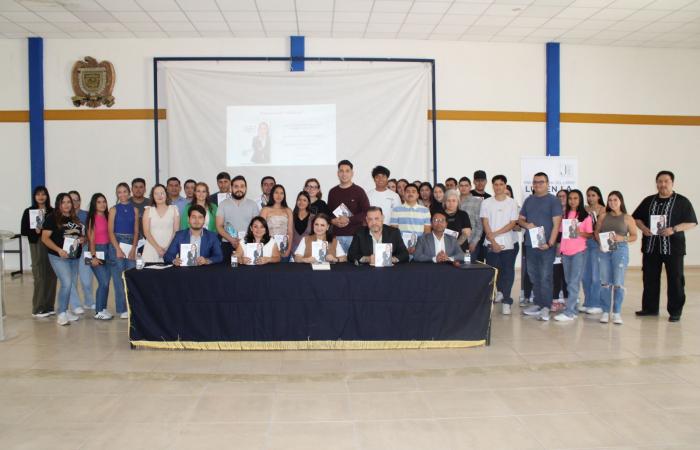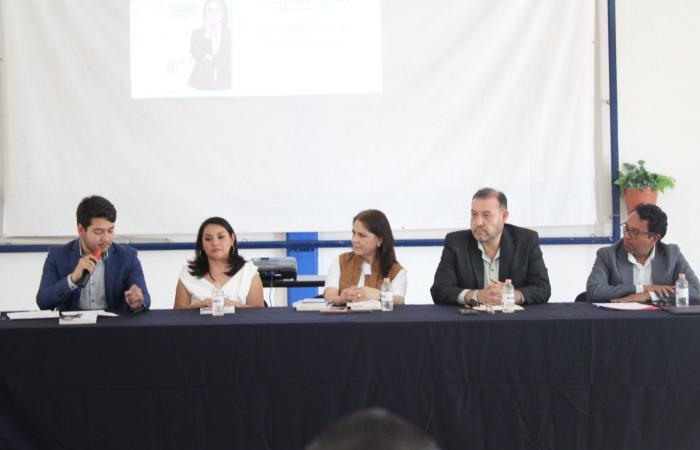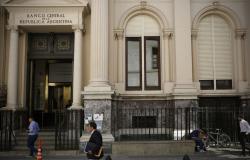Jalpa. “Transparency is not just a democratic value, it is also a tool for economic development,” said Julieta del Río, a former commissioner of the National Institute of Transparency, access to information and protection of personal data (INAI), to the students of the accounting career of the Autonomous university of Zacatecas (UAZ), Jalpa Campus, in the presentation of his book “Light in the shadow: INAI ”.
“You study a key career in your municipality to strengthen confidence between producers, authorities and consumers. when the information is public and clear, it is known how and what public resources are used, and thus producers can make better informed decisions, access support programs without discretion and compete in more just conditions,” said Del Río
When exposing the reasons that led her to write the book she also detailed the social utility of access to information for people and how their lives changed, in addition to how acts of corruption were known thanks to information requests that were part of journalistic investigations
He told them that, in Jalpa, where nopal and agave are part of the productive heart, opening information on how they are grown, who receives support and how these products are marketed can make a difference.
“Today, from Jalpa, on the campus of our Autonomous University, I want to underline a truth that crosses my book Luz in the Shadow: my path through transparency and inai, transparency is not just a demand for the state, it is also a tool for dignity for local work and production,” said Julieta del Río
When the authorities open the information on how it is cultivated, who receives supports, what programs and if who receives them truly brings together the characteristics of the program, under what conditions our products are exported, not only the opacity is fought: the producers are also empowered, the producers are generated more fair markets and the trust is strengthened in what is capable of building from the local.
Julieta del Río commented that Shadowhis book, is a testimony about how transparency transforms, and the Zacatecan field is a living sample that, when the process is illuminated, the real value of what we produce flourishes.
Transparent the production chain strengthens consumer confidence, avoids the misuse of public resources and makes visible the good practices that exist in the Zacatecan field, he said.
“Transparency in the field is not a luxury, it is a direct route towards local strengthening, economic justice and recognition of the honest work of those who feed the country,” he said.
And he added that this right, in the productive chain, helps implement open traceability systems so that anyone can know the origin of the nopal or agave, the pitaya, how it was cultivated, what inputs were used and under what working conditions.
He mentioned that, of the most requested issues by society, is to know the registers of beneficiaries of each and every programs. Transparency in support and subsidies will always clear doubts about aspects of corruption, in the sense that only a few or that there is an inflated register.
Publicly disseminating who receives subsidies from the field, what amounts, with what criteria and how the results are evaluated and generates that the eyes of consumers turn to our state, strengthens the relationship between the economic sector and the institutions, he explained.
“Every day we know more cases where hiring is assigned that were assigned with surpasses or directed. That is knowing the public and the alleged acts of corruption, helps avoid unfair competition, so public procurement and open government purchases are important,” he said.
He explained that if the Government acquires nopal or agave products (for example, for food programs), transparent contracts, tenders and selection criteria will help not only the economic development of the State, since it also generates confidence in investors to be able to export and avoid the abuse of intermediaries.
He stressed that one of the issues on the international public agenda that is being lived in Mexico is that of tariffs and, therefore, he celebrated that the quality certification and export processes be known because that helps to generate confidence in international markets, especially for products such as agave, which can be used in mezcal or syrup.
Transparency not only fights corruption, it can also be a tool for economic and social development for producing regions such as Jalpa, strengthening confidence in their products, making good practices visible and empowering its producers.
“In my editorial work, Shade light, I tell how, through requests for access to information, the company managed to know Segalmex situations and also obtain the sponsors of programs beneficiaries, ”he said.
With requests and resources filed in the Institute against negative information from several institutions that handle support for the field, it was discovered that a significant part of the subsidies did not reach small producers, but concentrated on large businessmen and politicians with extensive properties, while those who really needed it were left out.
“Therefore, when presenting my book here, with the students of Jalpa of our maximum house of studies, the UAZ, I want to emphasize that transparency is not a bureaucratic issue. It is an act of social justice. It is to give name and face to those who do work the earth and open path so that resources reach where they are most needed,” he concluded.









